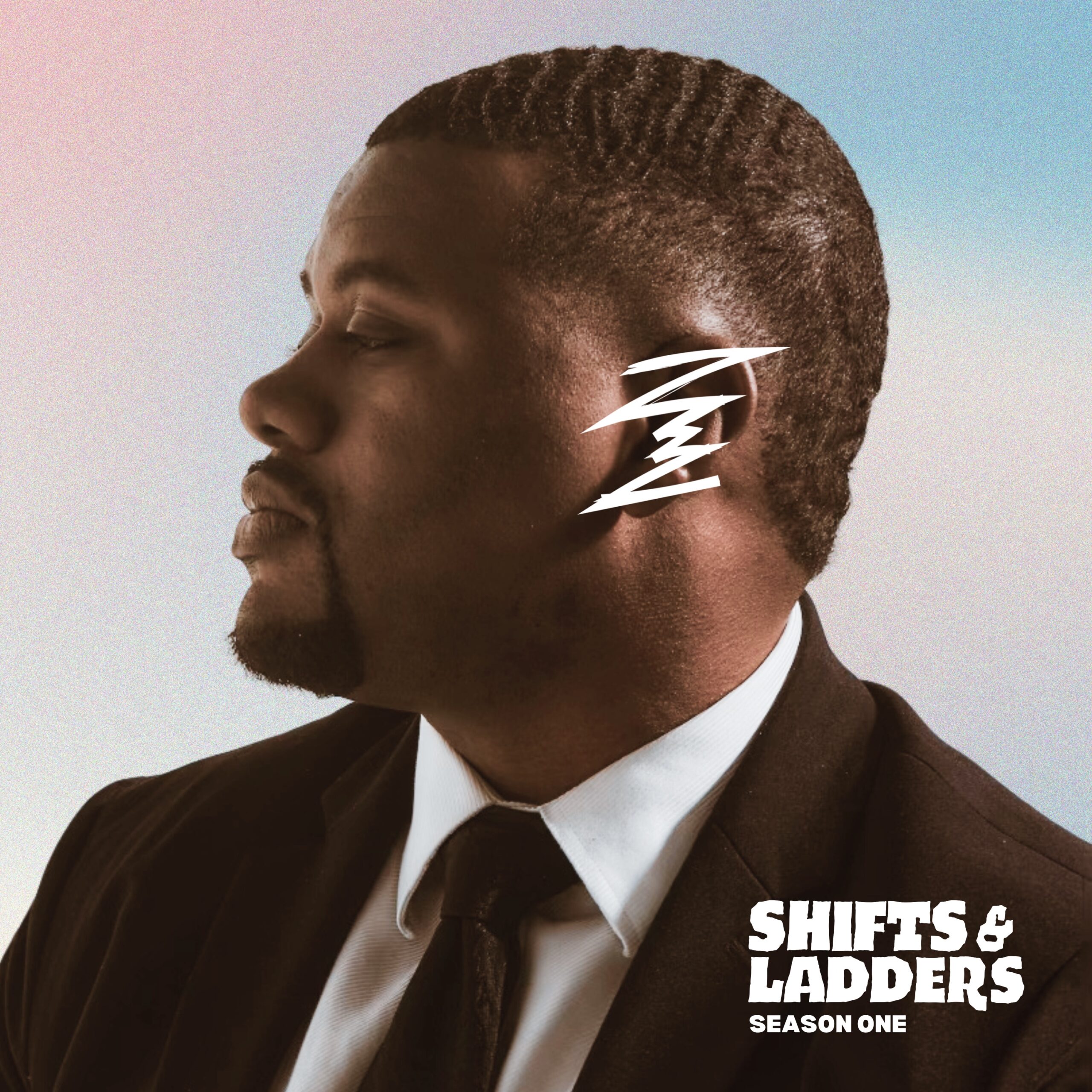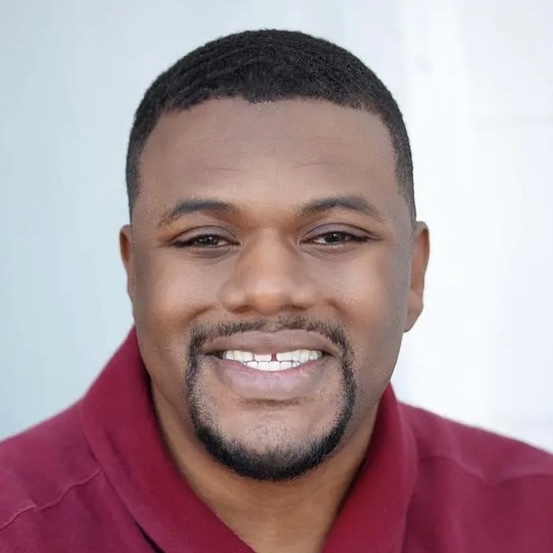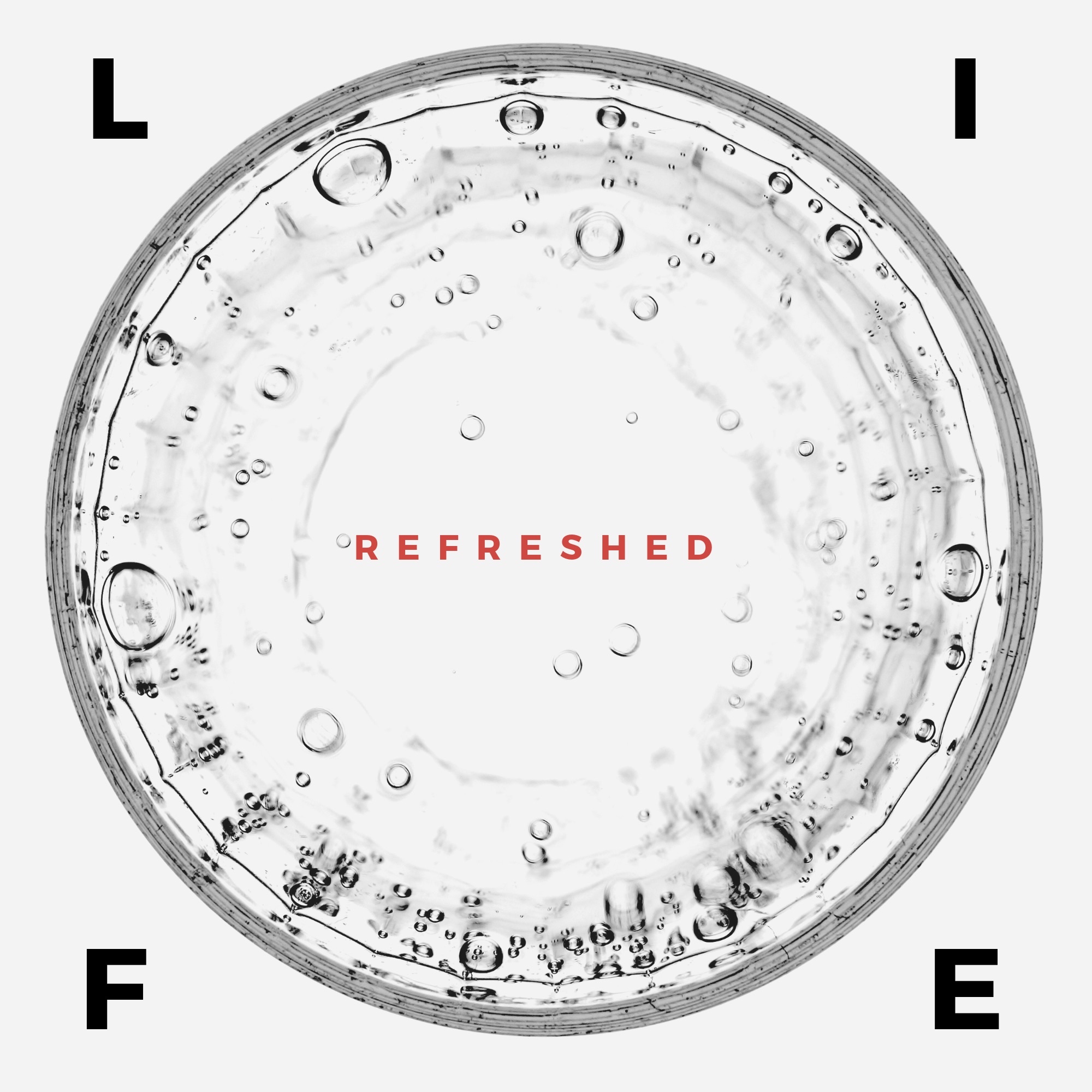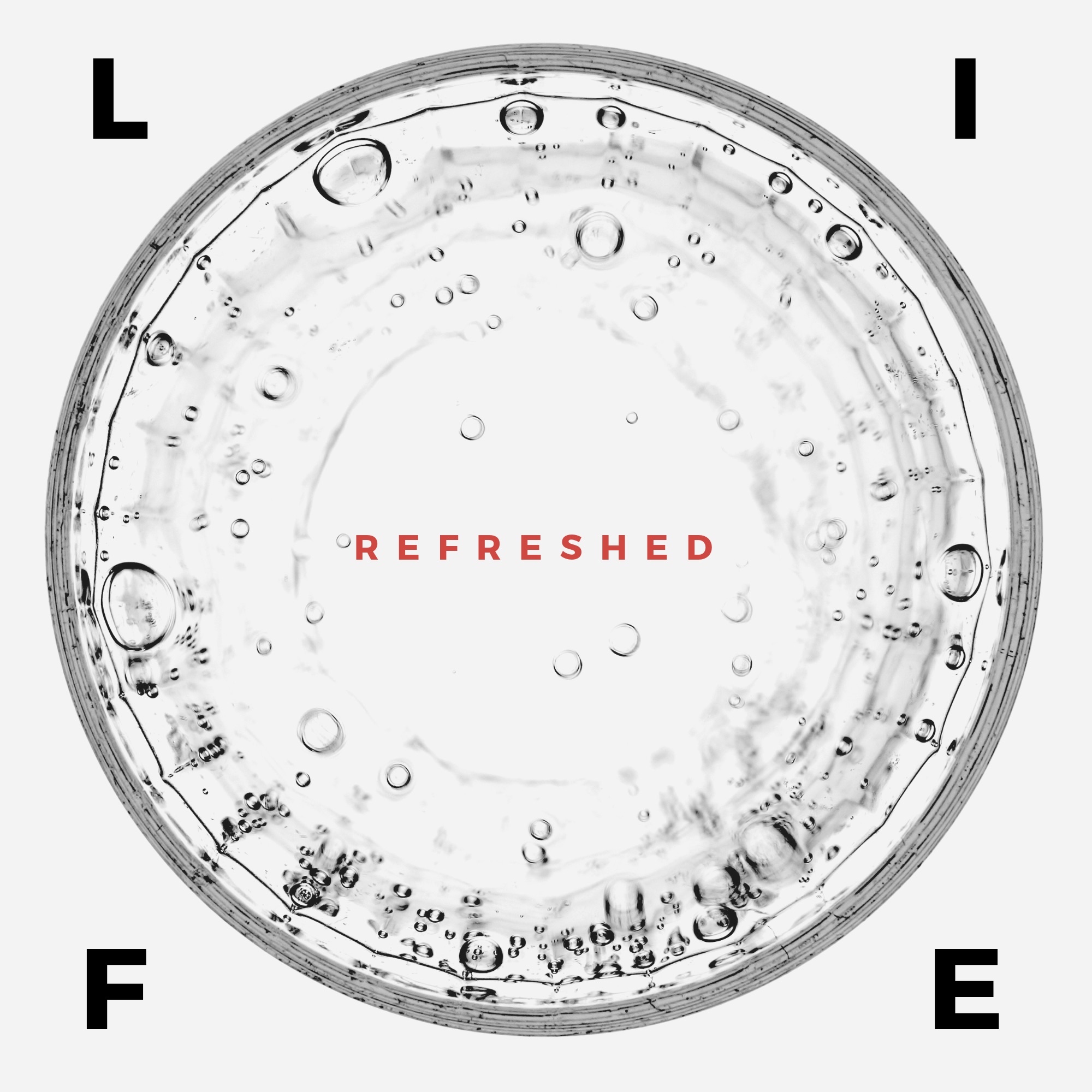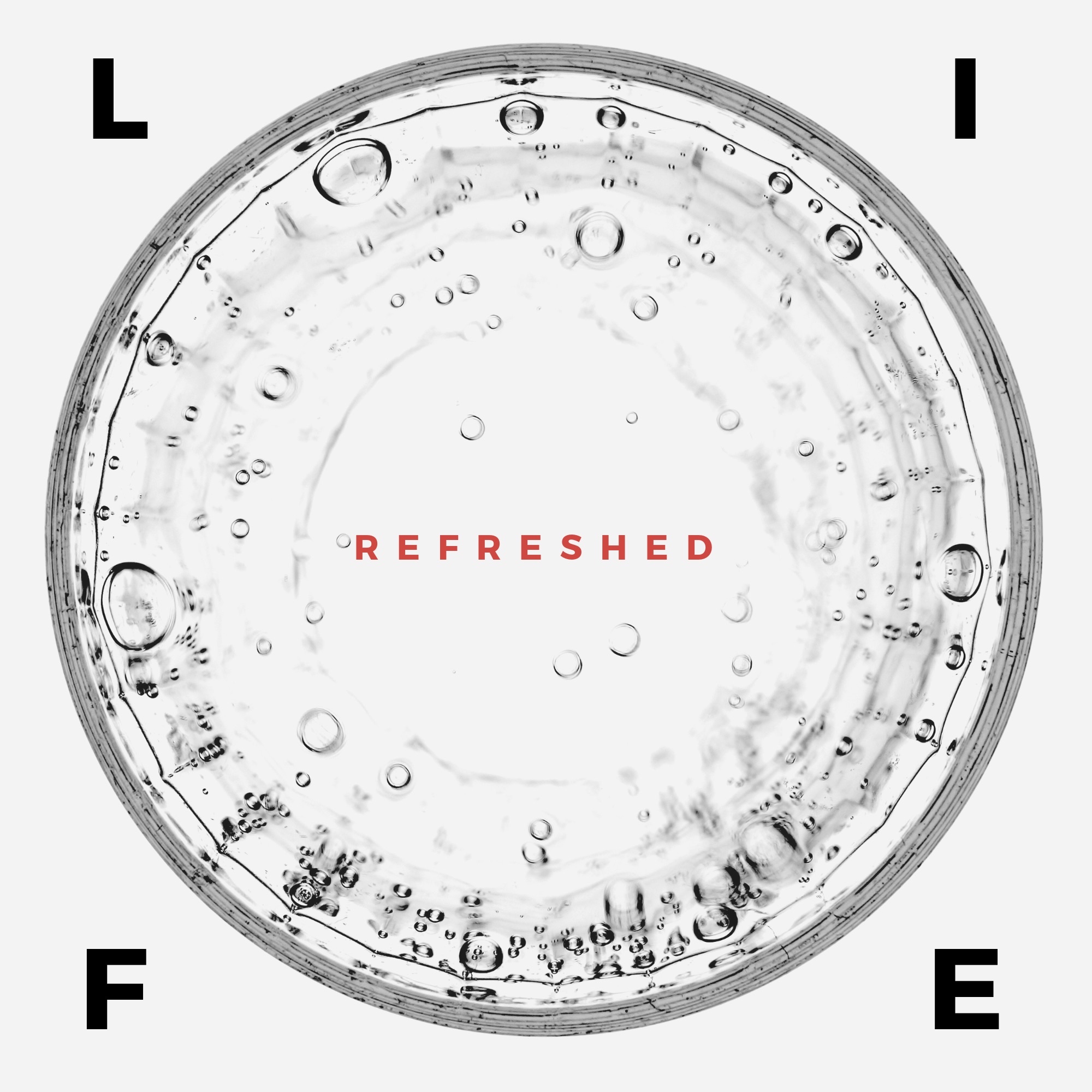Episode Transcript
Speaker 1 00:00:04 Welcome to the Life Refresh podcast. My name is Ryan Robinson, and if you are looking for a podcast that is designed to uplift, encourage and revive your heart, mind, and spirit, you're in the right place. Welcome to the journey of Becoming the version of You God designed from the foundations of Earth. Now, let's begin.
Speaker 1 00:00:31 Ladies and gentlemen. Welcome back to Life Refresh podcast. This is Ryan, so excited to be back with you again. I want to, um, drop another podcast. Here we are. We've, we've gone through several topics and interviews really over the last week or so that have prompted us to kind of think about things some differently. And, um, you know, I I going through, and I think many of us, particularly in this current circumstances in our world, is that we're finding that the things that we once thought were important and valuable are no longer finding themselves as important as we once thought they were. I know this sounds a little cryptic, but I I want to really focus on this topic today about living a lean life. There's gonna be several pieces to this, so I'm, I'm, uh, I don't know how long it's gonna go, but we just gonna start with the part one verse, and then we'll, we'll move on from there.
Speaker 1 00:01:38 I, uh, I'm gonna start with the scripture. This scripture had me rocked for maybe a, a a good weekend. I heard it on a Friday morning, on a Friday morning Bible study that I attend, uh, virtually. And, you know, you, you listening, you're engaged and yeah, we, we talk about scripture, we say a lot of things, and then there, this, this scripture just like rocked me to pieces, and I couldn't necessarily put my finger on what was going on. So let me read it first, and then I'll provide a additional context to it so that we can expound on what is being said here. But this is the, the story of the rich young ruler. And, and Jesus is a scripture snapshots and takes note of the dialogue between a rich, young ruler and, uh, the king of kings, the Lord of Lords, Jesus Christ himself.
Speaker 1 00:02:37 And it documents essentially the mindset of the man who is rich and the mindset of what we should have in the mind of Christ. So we get to get a, a view, get to listen in on this conversation, and, um, let me read it and, and we can talk about it some more. So this is Matthew chapter 19, starting at verse 16, and we'll go all the way down to, we'll go all the way down to 26. All right, so Matthew 1916 through 26, and it says, just then a man came up to Jesus and asked teacher, what good thing must I do to get eternal life? Why do you ask me about what is good? Jesus replied, there is only one who is good if you want to enter life, keep the commandments. Which ones he inquired? Jesus re replied, you shall not murder.
Speaker 1 00:03:34 You shall not commit adultery. You shall not steal. You shall not give false testimony. Honor your mother and father and love your neighbor as yourself. All of these I have kept. The young man said, what do I still lack? Then Jesus answered, if you are to be perfect, sell your possessions and give to the poor, and you'll have treasure in heaven, then come follow me. When the young man heard this, he went away sad because he had great wealth. When Jesus said to his, then Jesus said to his disciples, truly, I tell you, it is hard for someone who is rich to enter the kingdom of heaven. Again, I tell you, it is easier for a camel to go through the eye of a needle than for someone who is rich to enter the kingdom of God than the disciple heard this. And they were greatly astonished and asked who then can be saved.
Speaker 1 00:04:32 Jesus looked at them and said, with man, this is impossible. But with God, all things are possible. Okay, I'm gonna narrow down to verse 23 and 20, uh, maybe 24, but, uh, you need both of them because I think there's emphasis on this. So in scripture, whenever you hear something repeated in English, it is very important. It's not just important, it's very important. There's a point that Jesus is trying to make through the scripture as we're documenting and listening and, and breaking it down as to how important it is to get certain points clarified. What makes this so powerful is, is the rich young ruler is trying to figure out and understand what he has to do to be saved for eternal life. So, uh, we clearly are aware that this guy is very ambitious, right? So we, we clearly know that he, uh, clearly knows the commandments that, uh, not to murder, not to commit adulterer, not to steal, not the e false testimony, honor your father and your mother, all those kinds of things.
Speaker 1 00:05:47 Those are pretty, I mean, to not kill someone could be pretty easy to not do, you know, but this is the part he said, Jesus said, okay, if you, if you want to be perfect, now, this is the thing y'all, what he, what Jesus gave wasn't even in the commandment. This was off the menu <laugh>, because Jesus recognized that something else had his attention, okay? Now, he said, go sell your possessions and give to the poor, and you will have treasure in heaven. And hearing this was like, oh, man, I, I, I hear a lot about people getting rid of stuff. And, you know, um, if you've read the book, Maria Condos, the Magical Art of Tidying Up, which, um, I've read it, is, uh, it's an interesting book. Uh, the question always up that the individual is challenged to pose when they open up their closet and take all the clothes and put them in piles, is, does this spark joy for me?
Speaker 1 00:06:51 Do I feel good when I put this shirt on? Do I feel great when I put these shoes on? Do I feel joy when I look at my books on the bookshelf <laugh>? Like, are they things that I'm going to be engaged in? These are some of the criteria that Maria Condo's book actually provides here, and it is a criteria by which people decide whether they keep it or they throw it away, okay? And it is a challenge for many of us because many of us like to keep things. We are by nature hoarders. It's easy for us to do because what we do is that we, for many of us, put a lot of emphasis and intrinsic value on our possessions. Okay? This is a great example. If anyone has sold anything on eBay, I'm guilty. The things that you think should go higher <laugh> in sale are generally not the things that people find the most valuable, right?
Speaker 1 00:08:00 So you can go to a thrift store, find some mugs, put them on eBay, find out that they might actually be a limited Starbucks edition of the mug, and someone values that possession more than what you bought it for. So you may make a 200% increase that now gets sold for 20 bucks. Is that 200? Oh, the math? Oh my God, the $15, excuse me, <laugh>, we gotta edit that one out. But anyway, you put, and that to you, it is gonna cost you a few bucks, but for someone else, they value it to a degree that, oh, I'm a, I'm gonna put some, I'm part away some money for this. Now, the things that we add value to someone else may not have the same level or put the same level of value on it than we do. So say, if you're trying to, uh, sell your old car and trade it in to get a new one, it might have cost you $28,000 or $35,000 at one point.
Speaker 1 00:09:15 But to a dealership, if it's 10 years old, it's only worth $4,000, maybe five. But because of the experiences we've had in it, the challenges the store behind how we were able to purchase said vehicle, the, the things that my kids grew up in that van, or that my I, I graduated high school in, in, in this car, that I have memories here. This is the intrinsic value that we put on a material possession. Therefore, we actually will keep it longer than we should because we feel that the memory is tied to the material. But really the memory is tied to you. We just like knowing that those things are still with us in some way, shape, or form to help us remind and relive and repeat those moments, even though they no longer apply fit or can be properly sustained because things have moved on.
Speaker 1 00:10:20 Okay? There are certain vehicles like Oldsmobiles that are no longer in production. So to keep one of those vehicles, if you are just into keeping old vehicles, that's fine. But to have a car that is operational like a Saturn for a longer period of time, at some point, those vehicles are going to be called vintage, and those pieces and parts will no longer be made, and you will be forced to find and purchase a new vehicle simply because you have not been willing to let it go. So you'll hoard it, we hoard it, we do this both materially, we do it emotionally, we do it financially, we do it materially, and we just have never really learned how to do it. Now, there's movement, a movement, um, that many of us are aware of called Minimalism. Um, it is a methodology of thinking that basically for some people, <laugh> surprises them of, uh, their lifestyle.
Speaker 1 00:11:40 It is an expression of visual art that advocates the reduction of only the most needed things and possessions. It is also a mindset that says, I don't need the material things in order to be happy. Um, some people do it in crazy ways. I mean, they get rid of everything and only keep like one coffee cup, one plate, a fork, a spoon, a knife. Like they get really, really extreme. But there are some that have learned how to keep boundaries with certain things and have kept the things that they need versus what they think they will need. Here we go. This is the key. There's people that have what they need instead of what they think they will need, which is the reason why many of us hoard the things and experiences in our lives. Sometimes we hoard friendships, sometimes we hoard our trauma and nurture it, cover it up, put it in a box, go back and revisit it.
Speaker 1 00:12:51 There are things that we do to our own selves that give us extra weight that cause us to not live a lean life. So we'll, we'll, we're gonna go through this process of living a lean life with trying to get a definition. And, uh, I'm going to use, there's some, um, my, there's a group, um, called The Minimalists who have, uh, they have a couple of documentaries on Netflix as well as major shout out here. They're, they're dating boys from 9 37, which is where I am from. And it's really encouraging to hear and see these guys' story. But I wanna, I'll relate it back to scripture, um, before I, I move on and, and conclude this piece of the podcast or the series here. But their definition, I love their definition of minimalist because it's not a, a overly prescribed and overly uh, artsy definition.
Speaker 1 00:14:05 This is what they say minimalism is. Minimalism is the tool to get rid of life's access in favor of focusing on what's important. So you can find happiness, fulfillment, and freedom. They've given a little testimony that minimalism has eliminated their discontent, reclaim time, allow them be present and live in the moment, experience freedom, given the ability to create more and consume less, focus on their health, contribute beyond themselves, get rid of excess stuff. And most importantly, as a result, they were able to clearly see and discover their purpose in life. So I wanna get back to how does all of this stuff, all the things I just talked about, have anything to do with Matthew 19? Verses 23 to through 24, Jesus said to his disciples, I tell you, it's hard for someone who is rich to enter into the kingdom of heaven. Again, I tell you, it's easier for a camel to go through the eye of a needle than it is for someone who is rich to enter the kingdom of God.
Speaker 1 00:15:31 Let me clarify this before I get gone, before I'm go down this road, this road here, he's not talking about getting to heaven like I know He says this, but the kingdom of God is a, is a kingdom here on earth. It is what gives us the opportunity to be born again, the spiritual awakening that happens in our, uh, we become God conscious. Once we accept Jesus Christ as Lord and Savior. It awakens that peace in us, which is generally spiritually dead. That's another, that's another podcast. But if you're looking to find it, read Genesis chapter one in chapter two in chapter three. And you get some context there. But, uh, he's saying it's so hard. Didn't say it's impossible, but he said that it was hard. So forgetting some context from what was said before, the challenge for the rich young ruler was his possessions that he needed to let go.
Speaker 1 00:16:31 So why does Jesus use a camel as an example, which has a hump on its back to go through the eye of a needle versus a rich man to end it to the kingdom of heaven? If we just visually think about a camel going through an eye of a needle, close my, close your eyes for a minute. Close your eyes for a minute. Just see this eye of a needle and a camel. We clearly know that the eye of the needle is much smaller than the camel. It also has a hump on its back. The single hump, no matter where they decide to walk, could intrude and cause challenges for it to move around and function.
Speaker 1 00:17:24 But this is the thing, y'all, the camel has nothing on it to carry. The rich young ruler had possessions. His possessions made it difficult for him to move. Have you ever seen somebody in the airport have so many bags that they just look all kind of crazy walking around, particularly knowing that there might, they don't know how to pack at all. When you pack and when you travel, it is best to only bring the things that you need. Cause here it is, y'all. The more baggage you carry, the more you're going to have to pay the cost. The more baggage you carry, the more cost you're going to have to pay. If anyone's taking a flight, they know you're gonna get everything in that one. Carry on as best as you can. Cuz if you don't, it's going to cost you and it's going to take up room in your life, in your storage, in mental capacity, in your emotional capacity, in your relationships.
Speaker 1 00:18:33 It takes up space and somebody is gonna have to deal with it at some point. So living a lean life first starts with defining what that life is and looking around you for what you have decided to clutter, cover and carry around you. And start to put some boundaries, start to put some criteria and start to unpack. One you have decided is necessary for you to carry on your life's journey. Many of us are professional, bad characters. We've been weighed down our entire lives, but God knows what. But you know what? Many of us, even in that whole process, we carry bags that look good, but aren't good for us. But thanks be to God that we have an opportunity to deal with these possessions, to deal with the baggage, to deal with the clutter that will help us to live a lean life. Uh, there's a podcast that I listen to as I close here it is, uh, entitled The called by Pastor Tore Roberts.
Speaker 1 00:20:03 I I want, uh, I wanna put that in the show notes as well. You'll find it there. But he mentioned that the people who have the most powerful, clear, purpose filled life, live a life that's lead. They only bring with them the things that they're going to need on the journey. So I want to go along this journey with you, but we gotta do a baggage check. There's some things that we're not gonna need anymore. There's some things that have, in many cases just have been carried along with us and just got crumbled to the bottom of the bag. And we, we just haven't dealt with it yet. So please, let's take some time first and look and see what baggage do we have around this. And then you'll be ready for the next podcast episode here. Talk soon.
